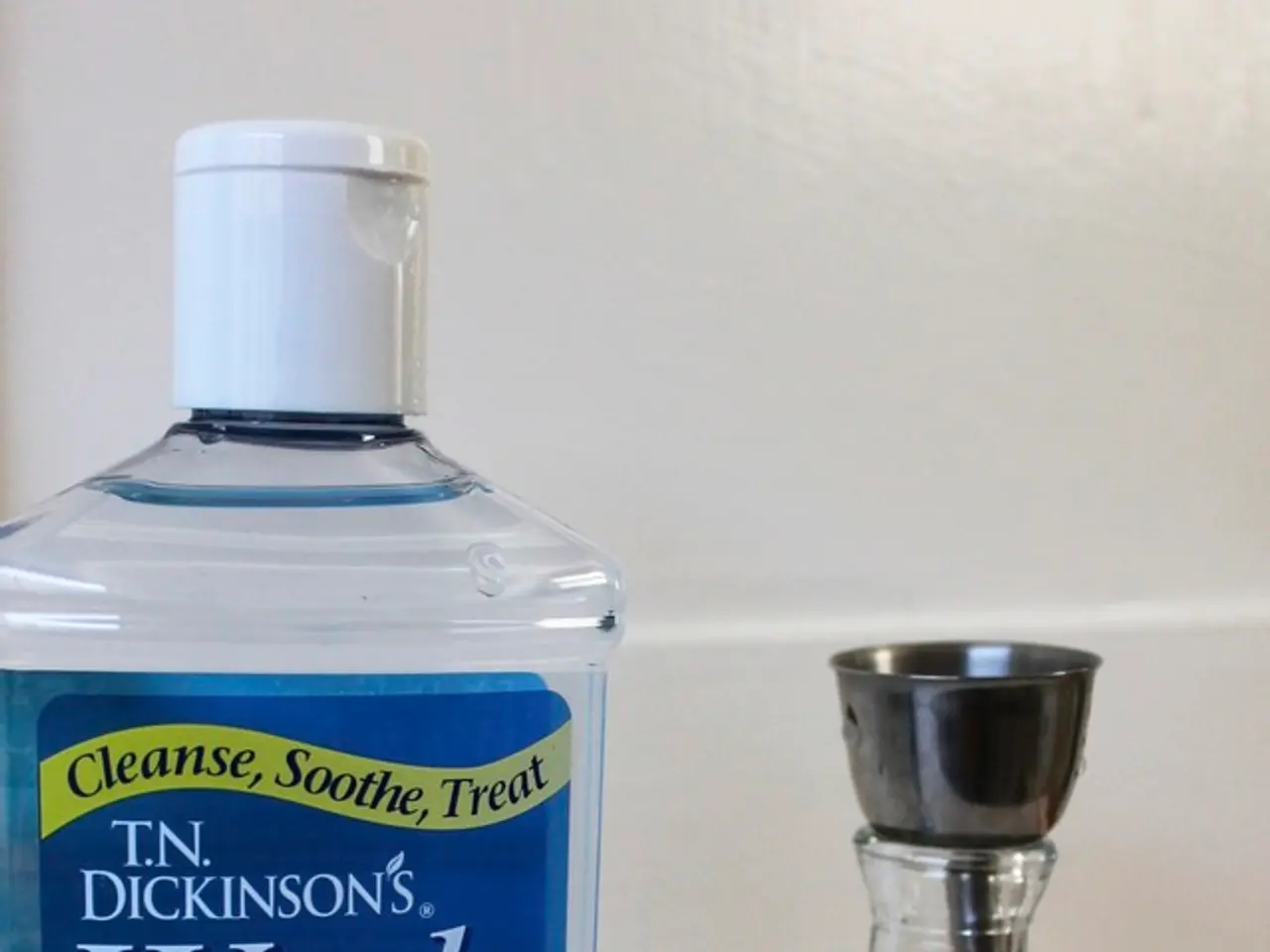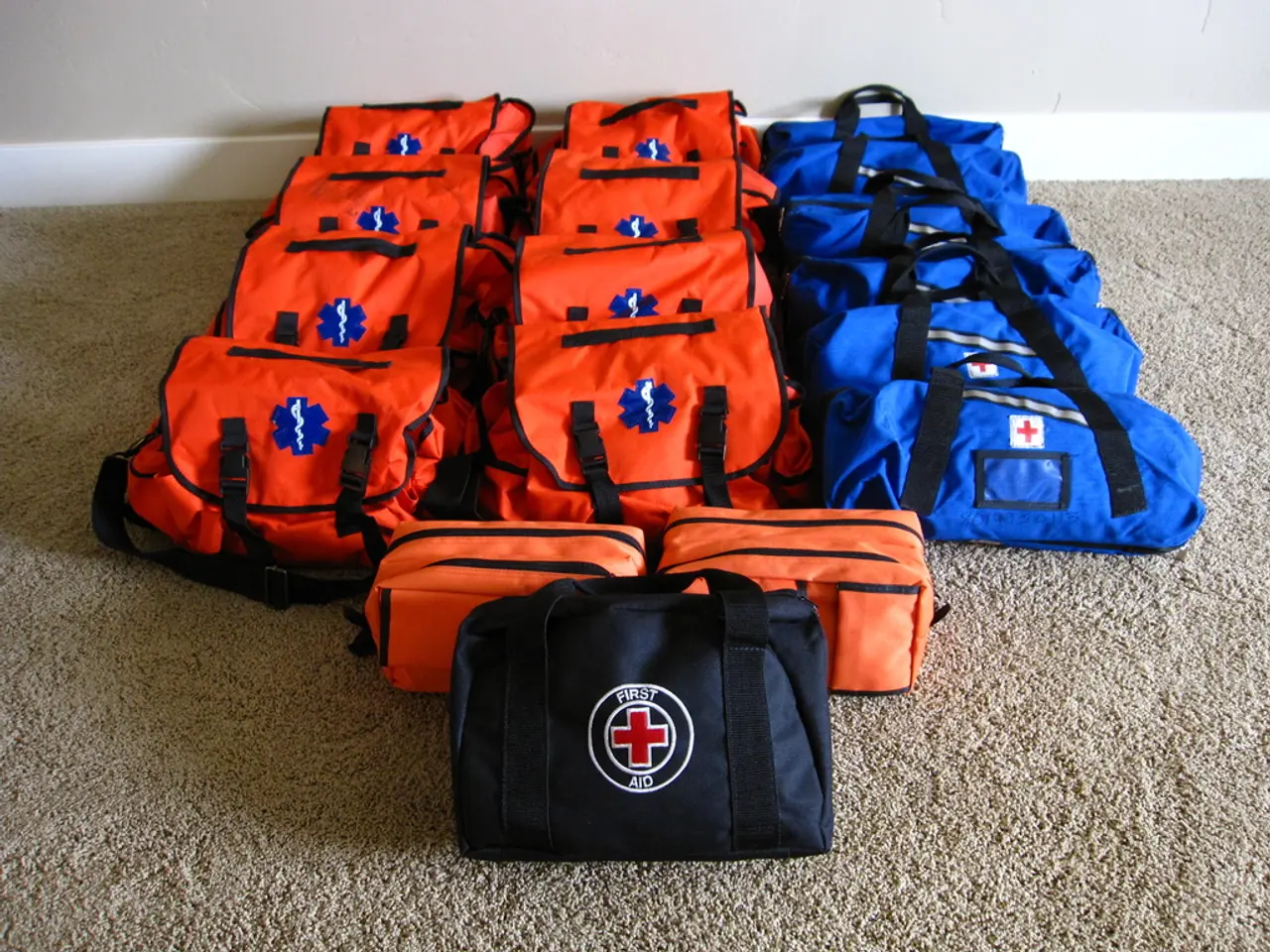Kuban medical practitioner explains the reason behind themass illness incidents in Sochi
In recent events, multiple incidents of mass poisoning have been reported in Adler and Sochi, Russia, due to the consumption of counterfeit alcohol. This dangerous trend highlights the importance of awareness and precautionary measures when it comes to alcohol consumption.
Identification and Avoidance of Counterfeit Alcohol
To minimize the risk of encountering counterfeit alcohol, it's crucial to exercise vigilance. Check the bottle and packaging carefully for any irregularities such as spelling errors, poor print quality, unusual labels, or missing tax stamps. Genuine products typically have secure seals, holograms, or digital authenticity markers like RFID or specialized micro-imperfections ("fingerprints") that can be verified with a smartphone.
Purchasing alcohol from reputable sources is another effective strategy. Stick to licensed and trusted retailers to reduce the risk of counterfeit or illicit products. Be skeptical of suspiciously cheap alcohol, as it could be a fake or home-brewed product potentially containing harmful substances.
Technologies such as Cryptoglyph, RFID tagging, or smartphone-based fingerprint verification can also authenticate bottles, especially in spirits, and are increasingly deployed to detect counterfeits.
Dangers of Methanol in Counterfeit Alcohol
Counterfeit alcohol often contains methanol, a highly toxic substance. Methanol is metabolized in the body into formaldehyde and formic acid, which cause metabolic acidosis, blindness, and can be fatal even in small quantities.
Mass poisoning incidents with methanol have been reported worldwide, often involving multiple victims who consumed counterfeit or adulterated alcohol.
Symptoms of Methanol Poisoning
Initial symptoms of methanol poisoning usually appear within 6 to 24 hours after ingestion and can include headache, dizziness, nausea, vomiting, abdominal pain, and blurred vision. Visual disturbances such as "snowfield vision" or complete blindness are characteristic and dangerous signs.
Advanced poisoning leads to metabolic acidosis (causing deep breathing and confusion), seizures, coma, and death if untreated.
Preventive Measures and Medical Treatment
In case of poisoning, immediate action is crucial. Call an ambulance immediately and rinse the stomach, give the victim sorbents, and plenty of water to drink until the ambulance arrives. Prompt medical treatment with antidotes like fomepizole or ethanol, and supportive care including hemodialysis, drastically improves outcomes.
Alexander Gorachev, a physician-methodologist at the Center for Public Health and Medical Prevention of the Kuban Ministry of Health, strongly emphasizes the importance of taking care of oneself and loved ones regarding alcohol consumption. He advises buying alcohol only from licensed retailers and checking the packaging and the presence of an excise mark when buying alcohol.
In light of these incidents, it's best to avoid drinking alcohol of unknown origin, especially if it's very cheap. The poison, identified as methanol, a technical spirit, is almost indistinguishable from ethanol in taste and smell, making it all the more dangerous.
The statement emphasizes the danger of counterfeit alcohol, with both suspects in the case of fatal moonshine poisoning in Sochi having been arrested. It's a stark reminder that these substances damage the nervous system, organs of sight, and organs of breathing, making them a significant threat to public health.
Stay vigilant, be cautious, and prioritize safety when it comes to alcohol consumption.
Science plays a crucial role in addressing the threat posed by counterfeit alcohol, particularly in terms of health-and-wellness and mental-health. For instance, advancements in technology such as Cryptoglyph, RFID tagging, or smartphone-based fingerprint verification, have enabled more efficient detection of counterfeit bottles, especially in spirits. These technologies could potentially aid in the development of therapies-and-treatments for those unfortunate enough to consume counterfeit alcohol containing substances like methanol. Overall, it's essential to steer clear of counterfeit alcohol to safeguard one's health and wellbeing.




